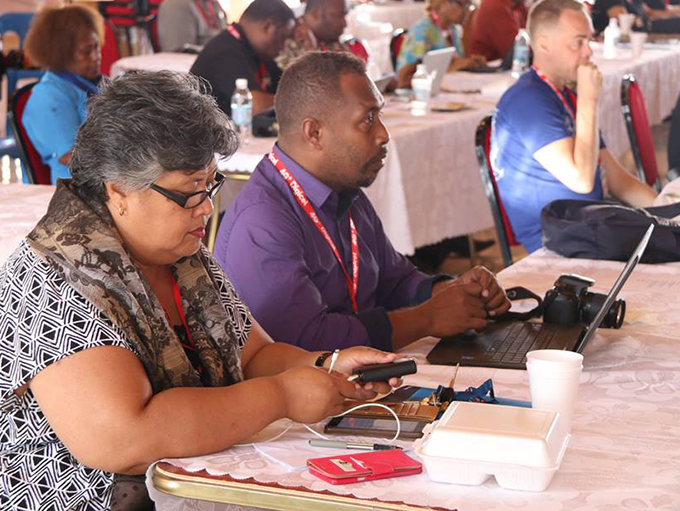
BRIEFING: By Geraldine Panapasa
SUVA (Asia Pacific Report/Wansolwara/Pacific Media Watch): Like it or not, social media has become part and parcel of almost everyday discussions.
Whether it’s talk about the economy or the latest development and trends, large and influential platforms such as Facebook, Twitter, YouTube, Instagram and LinkedIn have become the go-to source for news and information.
Add technological advancements and accessibility to the mix, and one is left with a digitally-empowered society and a media industry grappling with a number of challenges such as fake news, citizen journalism and in some cases, harsh legislation.
Legislation that can either be viewed as a way to clamp down on journalists or to some extent, limit one’s constitutional freedom of speech, expression and publication, or it could be legislation driven by genuine concerns to ensure news and information are accurate, fair and balanced.
The advent of social media, its impact on journalism and the transforming political situations that are evidently changing the way the media operates in the Pacific were at the heart of the discussions at last month’s 5th Pacific Media Summit organised by the Pacific Islands News Association (PINA) in Nuku’alofa, Tonga.
The May 7-11 event, attended by more than 100 media practitioners and stakeholders, also highlighted other pertinent issues relating to the theme, “Empowering the Media for Digital Challenges”, such as climate reporting; social media impact on financial literacy, women empowerment and the environment; international humanitarian law; gender and the digital media; the role of the media in fighting corruption; and dealing with threats against the media.
But the biggest concern by far was dealing with the change that social media brought in terms of the traditional dissemination of receiving, consuming, sharing and interpreting news and information.
Read the full report at Asia Pacific Report
This work is licensed under a Creative Commons Attribution-NonCommercial 3




